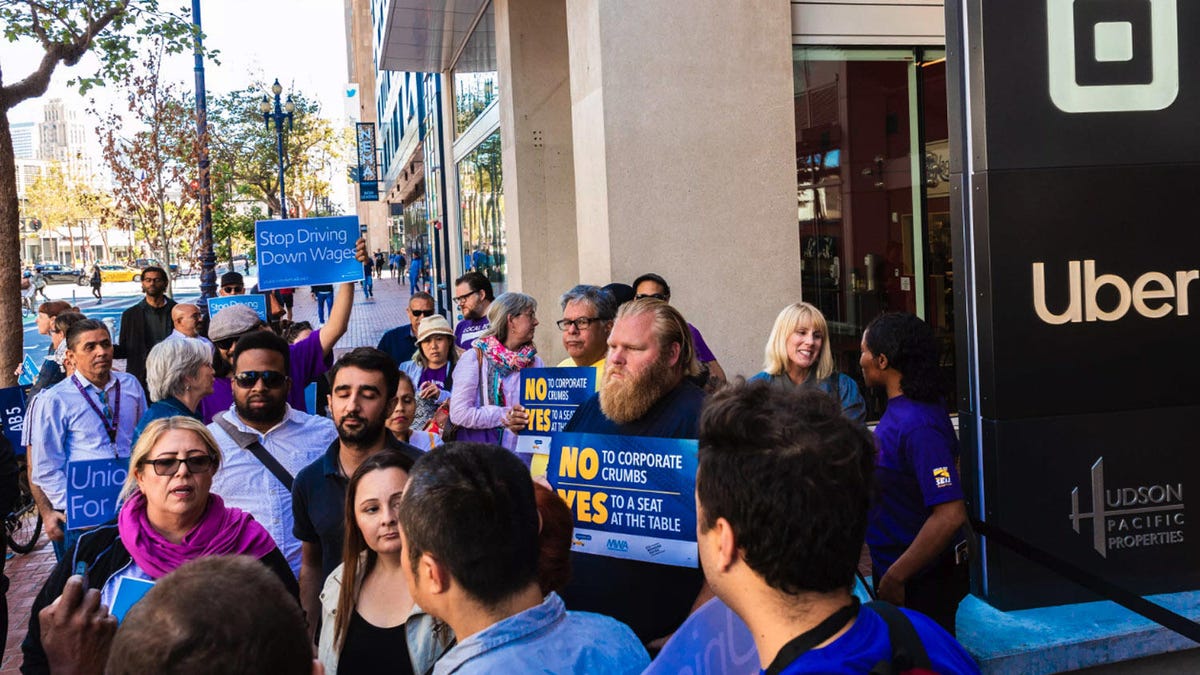California bill passes to classify Lyft, Uber drivers as employees
The legislation could transform the so-called "gig economy," which is made up of independent contractors.

Drivers have argued for employee benefits in recent years. This week, they won.
California will become the first state to mandate app-based companies like Lyft and Uber must treat contracted workers as employees, not freelancers. The landmark passage could utterly transform how Lyft, Uber and so many other companies operate in the state.
The New York Times detailed the bill's passage, which passed the state Senate with a vote of 29 to 11 on Tuesday night. Gov. Gavin Newsom also previously endorsed the bill. At its core, Assembly Bill 5 will require companies to put workers on the payroll if the the company controls how he or she performs a task, or if the work is part of a company's standard business. Effectively, Lyft, Uber, Doordash and so many other contracted workers will become employees under the law -- and that will require said companies to adhere to minimum wage laws and provide basic benefits like unemployment insurance.
At the ride-sharing giants, they warned it could upend their operations. A Lyft representative said, "Today, our state's political leadership missed an important opportunity to support the overwhelming majority of rideshare drivers who want a thoughtful solution that balances flexibility with an earnings standard and benefits." The representative added, "The fact that there were more than 50 industries carved out of AB5 is very telling. We are fully prepared to take this issue to the voters of California to preserve the freedom and access drivers and riders want and need."
Uber could not be reached for immediate comment.
According to the report, reclassifying contracted drivers as employees could cost companies 20% to 30% more, and drivers will likely lose the flexibility of logging on for the job whenever he or she wants. However, experts pointed out the bill does not require setting shifts, and drivers are legally entitled to continue to make their own schedules. Cities will also have the ability to sue companies that do not follow the new laws.
The reverberations could give way to a whole new era of how ride-sharing companies operate, such as a limit to how many drivers are available during slow hours. And not all drivers were thrilled about losing their contractor status over fears it would hurt flexibility. Ride-share companies met with the California government and proposed a solution to guarantee a minimum wage and the right to organize, but labor groups did not accept the compromise.
The fight is hardly over. Lyft, Uber and many other companies have pledged millions of dollars to put AB5 on the ballot for a referendum and exempt their organizations from the new law. Uber will also reportedly lobby lawmakers to create a new worker classification to better suit its industry. As it stands, contractors will become regular employees beginning Jan. 1, 2020.

